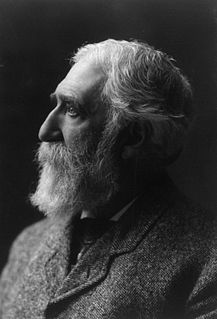A Quote by Phil Harding
Everybody talks about population growth and its disastrous effect on climate change, food security and resource depletion, but nobody does anything about it
Related Quotes
Today's voguish threats, including climate change, population growth, massive war, and resource depletion, are all amenable to a fix if we act prudently. And even if we don't, these problems are incapable of obliterating all of humanity, let alone destroying the Earth. No, the real End of Days will happen slowly, as the Sun ages.
Environmental policies are not just about good publicity; they are about responding to the moral imperative to address both climate change and resource depletion...A company culture that is based on measuring everything in purely financial terms will be crippled by a high turnover of staff, customers and suppliers
City farming is not only possible, it is the very definition of the kind of meaningful, sustainable innovation we will need to meet the grand challenges of the 21st century: climate change; population growth; ageing population; urbanization; rising demand for energy, food and water; poverty; and access to healthcare.
Climate change and ozone depletion are two global issues that are different but have many connections. In the ozone depletion case, we managed to work with decision makers effectively so that an international agreement called the Montreal Protocol was achieved that essentially solved the ozone depletion problem.
One of the most persistent ambiguities that we face is that everybody talks about peace as a goal. However, it does not take sharpest-eyed sophistication to discern that while everbody talks about peace, peace has become practically nobody's business among the power-wielders. Many men cry Peace! Peace! but they refuse to do the things that make for peace.
I generally avoid over-population arguments. But there's no question we're in population overshoot. The catch is we're not going to do anything about it. There will be no policy. The usual suspects: starvation, war, disease, will drive the population down. There's little more to say about that really, and it's certainly an unappetizing discussion, but it's probably the truth. In any case, we're in overshoot and we face vast resource scarcities.
Hollywood is the perfect conduit for the urgent message about climate change. We raise awareness all the time. We routinely take a film that nobody knows about and get 80 percent of the public to know about it in just 30 days. That's called marketing. We need to harvest Hollywood for climate change awareness.
You really do have to wonder whether a few years from now we’ll look back at the first decade of the 21st century — when food prices spiked, energy prices soared, world population surged, tornados plowed through cities, floods and droughts set records, populations were displaced and governments were threatened by the confluence of it all — and ask ourselves: What were we thinking? How did we not panic when the evidence was so obvious that we’d crossed some growth/climate/natural resource/population redlines all at once?
Overall, The Population Bomb was probably too optimistic. I was writing about climate change - Anne and I actually wrote the book. We discussed whether or not you'd have to take a gondola to the Empire State Building, and that sort of thing, but we didn't know at the time whether the climate change would be in the direction of heating or cooling. We just didn't know enough about it.































